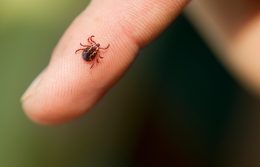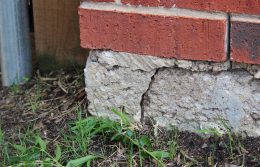What’s Killing Your Garden?
It’s summertime and the sun is shining, the birds are chirping, and life in the Lone Star State is pretty great — unless you’re a plant trying to survive Texas’ heat, storms, and pests. If your tomato plants look tired, your roses look rough, or your lawn looks lacking, here are some tips from Travis County master gardener Jerry Naiser and Antique Rose Emporium owner Mike Shoup of Brenham to help you find the culprits and save your plants.
Water Wisely
If brown circles show up on your lawn and dark spots appear on your rose and tomato leaves, heavy rains or excess watering are causing fungus growth. The first step to solving the problem is to water less and change the timing. “If your lawn has a brown patch, don’t water at night,” Naiser says, “because that can promote the growth of mold and mildew on the grass.” Next, improve air circulation. Prune excess growth from affected shrubs and vegetable plants, remove nearby weeds and crowded foliage, and “lower your mower blades to let more air get to your lawn.”
Repel Pests With These Recipes
Naiser recommends several ways to reduce insects and fungus. For pests, “use your garden hose to spray the bugs off daily.” If that doesn’t discourage them, add half an ounce of dish soap to a gallon of water and spray the infested plants daily. “The surfactant in the soap lets the water spread across the waxy coating on leaves,” which can keep pests at bay.
If your vegetables and roses have black spots or your lawn has a brown patch, Naiser says you can add copper powder, sold at garden stores as Kocide 2000, to your soapy water. Another antifungal you can add to your soapy water spray is neem oil, which is safe for birds, mammals, people, and bees. Both Kocide 2000 and neem oil can be toxic to fish and other water animals, so avoid using it near ponds and creeks. Follow all safety directions when using Kocide 2000, neem oil, and other gardening products.
For crawling pests like slugs and snails, Naiser recommends sprinkling diatomaceous earth just on the surface of your garden soil. This powder, made from finely ground eggshells or the skeletons of tiny sea creatures, fatally scratches pests’ exoskeletons as they move over the soil.
Set Realistic Summer Rose Goals
If your “ever-blooming” roses have stopped flowering, Shoup says that’s normal. “The heat makes them sulky and they may go semidormant. During the summer, you’re gardening for fall blooms.” That means deep watering once a week to promote healthy root growth, ensuring good air circulation and sun exposure, and treating leaf fungus now. The payoff for this summer work, Shoup says, is “spectacular bloom displays in the fall, when we’re outside more to enjoy them.”
A few simple ingredients, a good watering schedule, and regular inspections can help your landscape beat the summer heat. If you have more questions, you can check the Texas A&M PLANTanswers website or call your county’s extension office or master gardener program.
Is anything more delicious than a tomato fresh from the vine? Learn how to protect your tomato plants so you can savor more of one of summer’s best flavors.
© 2017 Texas Farm Bureau Insurance



